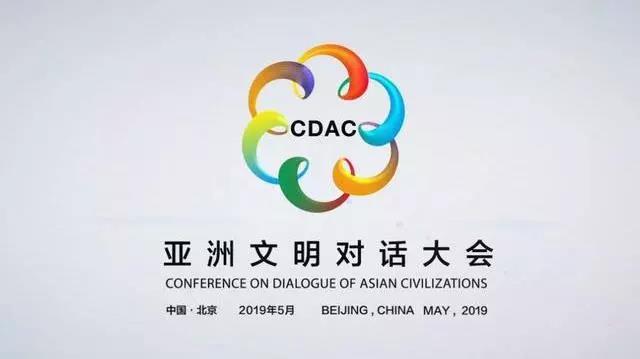

The 10 most popular Chinese buzzwords of 2019 were announced on Monday by Yao Wen Jiao Zi, an authoritative monthly periodical on Chinese culture and language, scol.com.cn reported on Dec. 3.
"Mutual learning among civilizations" (文明互鉴)

"Civilizations have become richer and more colorful with exchanges and mutual learning."
Chinese President Xi Jinping proposed the idea of exchanges and mutual learning among civilizations during a speech at the headquarters of the United Nations Educational Scientific and Cultural Organization (UNESCO) in 2014.
Xi has elaborated on "mutual learning among civilizations" during many important occasions over the past five years, continually expanding the influence of the phrase.
Mutual learning among civilizations is believed to be the humanistic foundation of the efforts to build a community with a shared future for humankind, a bridge that helps enhance friendship among people from various countries, a driving force for social progress, and a bond that helps maintain peace.
"Blockchain" (区块链)

A blockchain is essentially a shared database, with the data and information stored in it being immutable, traceable, open, transparent, and collectively managed. These features make blockchain technology a hot topic in modern society, and it enjoys broad prospects of application.
Xi stressed using blockchain as a key breakthrough point in independent innovations in core technologies, during a group study session of the Political Bureau of the Communist Party of China Central Committee held this October.
"Hardcore" (硬核)
The Chinese word "硬核" (Ying He) is translated from the English word "hardcore". It originally referred to a style of rap music with intense lyrics and a fast beat.
The meaning of the word has been further extended in recent years. People have used the word to show that some people or things are excellent or powerful. Phrases often used by combining hardcore with other words include hardcore regulations, hardcore mother, hardcore game player, and hardcore life.
"Mixing up punch lines/plots" (融梗)
The phrase refers to the act of integrating punch lines, ideas or movie plots of others into one's own works. In recent years, numerous online discussions have popped up on the topic, as several literary works have been accused of plagiarism.
So far, there has been no consensus about whether such acts are reasonable use or illegal plagiarism.
"Among tens of thousands of …, … is the very first one" (**千万条,**第一条)
The phrase originates from a slogan in the Chinese sci-fi movie "The Wandering Earth". A traffic slogan reading "Among tens of thousands of matters, safety is the very first one. Irregular operations will make your loved ones shed tears." was seen several times in the movie. It was supposed to remind people to drive safely in a humorous way.
After the movie was released in February, it quickly became a hit in China, and the funny traffic slogan was frequently borrowed to create various advertising slogans.
"Green as a lemon elf with envy" (柠檬精)
The phrase refers to people who are jealous of others or unhappy about something. In Chinese, people use "a sour taste" to mean the bitter feelings sparked by envy. Therefore, lemon was initially used to sneer at people who were envious of others.
The phrase has also been used for self-mockery. Sometimes, people say "I am a lemon" or "I feel sour" to express their envy or admiration for others.
"The 996 work schedule" (996)
"996" refers to a work schedule that is quite common in high-tech Chinese companies, especially internet companies. People who follow this schedule work from 9 a.m. to 9 p.m., six days a week, amounting to a total of 72 hours per week.
The 996 work schedule severely violates China's Labor Law and has provoked widespread criticism in China.
"Life is so hard for me" (我太难(南)了)
The phrase "life is so hard for me" originates from a video on Chinese short-video sharing platform Kuaishou. The video starts with a piece of sad background music, and the man in the video says, "life is so hard for me. Buddies, I feel so stressed lately," with a gloomy expression.
The phrase "life is so hard for me" caused a sensation online. Some even created memes based on the phrase.
"I don't want to hear what you think about it, I want it my way" (我不要你觉得,我要我觉得)
A famous Chinese actor initially coined the phrase in a Chinese reality TV program named "Chinese Restaurant". Huang Xiaoming, who played the manager of the Chinese restaurant, said things like "I don't want to hear what you think about it, I want it my way", "this does not need discussion", "do as what I said, I have the final say" to his "employees" in the show, who were also celebrities.
Huang was criticized for his self-centered and arbitrary image in the show. Many of his lines in the program have frequently been used online to show people's dislike for overbearing and rude people.
"Bullying" (霸凌主义)
The Chinese word "Baling" (霸凌) was translated from the English word "bully." Bullying refers to the act of dealing with disputes between countries in an aggressive or manipulative way. Bullying has become an international buzzword that attracted global attention this year.
 Fire brigade in Shanghai holds group wedding
Fire brigade in Shanghai holds group wedding Tourists enjoy ice sculptures in Datan Town, north China
Tourists enjoy ice sculptures in Datan Town, north China Sunset scenery of Dayan Pagoda in Xi'an
Sunset scenery of Dayan Pagoda in Xi'an Tourists have fun at scenic spot in Nanlong Town, NW China
Tourists have fun at scenic spot in Nanlong Town, NW China Harbin attracts tourists by making best use of ice in winter
Harbin attracts tourists by making best use of ice in winter In pics: FIS Alpine Ski Women's World Cup Slalom
In pics: FIS Alpine Ski Women's World Cup Slalom Black-necked cranes rest at reservoir in Lhunzhub County, Lhasa
Black-necked cranes rest at reservoir in Lhunzhub County, Lhasa China's FAST telescope will be available to foreign scientists in April
China's FAST telescope will be available to foreign scientists in April "She power" plays indispensable role in poverty alleviation
"She power" plays indispensable role in poverty alleviation Top 10 world news events of People's Daily in 2020
Top 10 world news events of People's Daily in 2020 Top 10 China news events of People's Daily in 2020
Top 10 China news events of People's Daily in 2020 Top 10 media buzzwords of 2020
Top 10 media buzzwords of 2020 Year-ender:10 major tourism stories of 2020
Year-ender:10 major tourism stories of 2020 No interference in Venezuelan issues
No interference in Venezuelan issues
 Biz prepares for trade spat
Biz prepares for trade spat
 Broadcasting Continent
Broadcasting Continent Australia wins Chinese CEOs as US loses
Australia wins Chinese CEOs as US loses